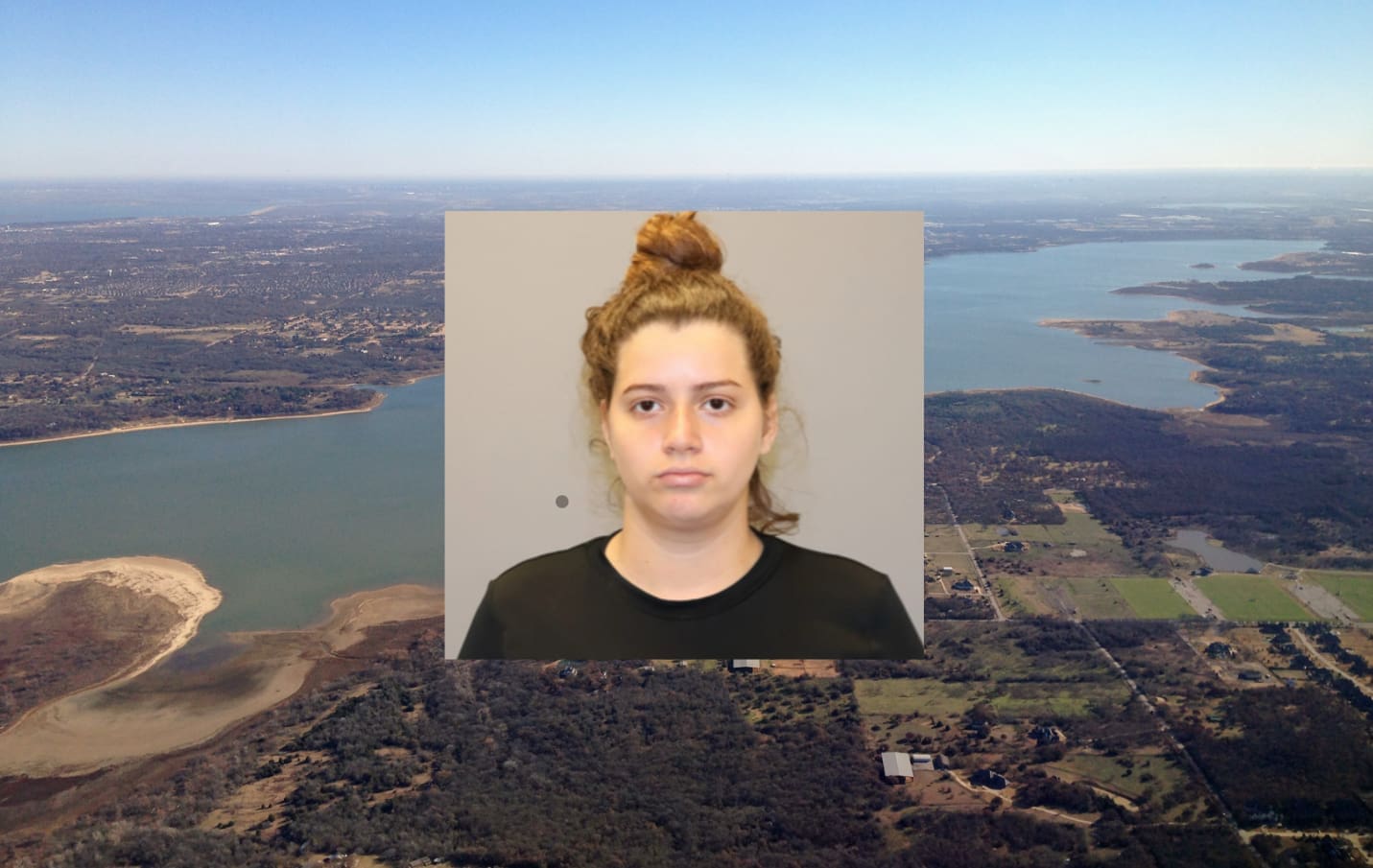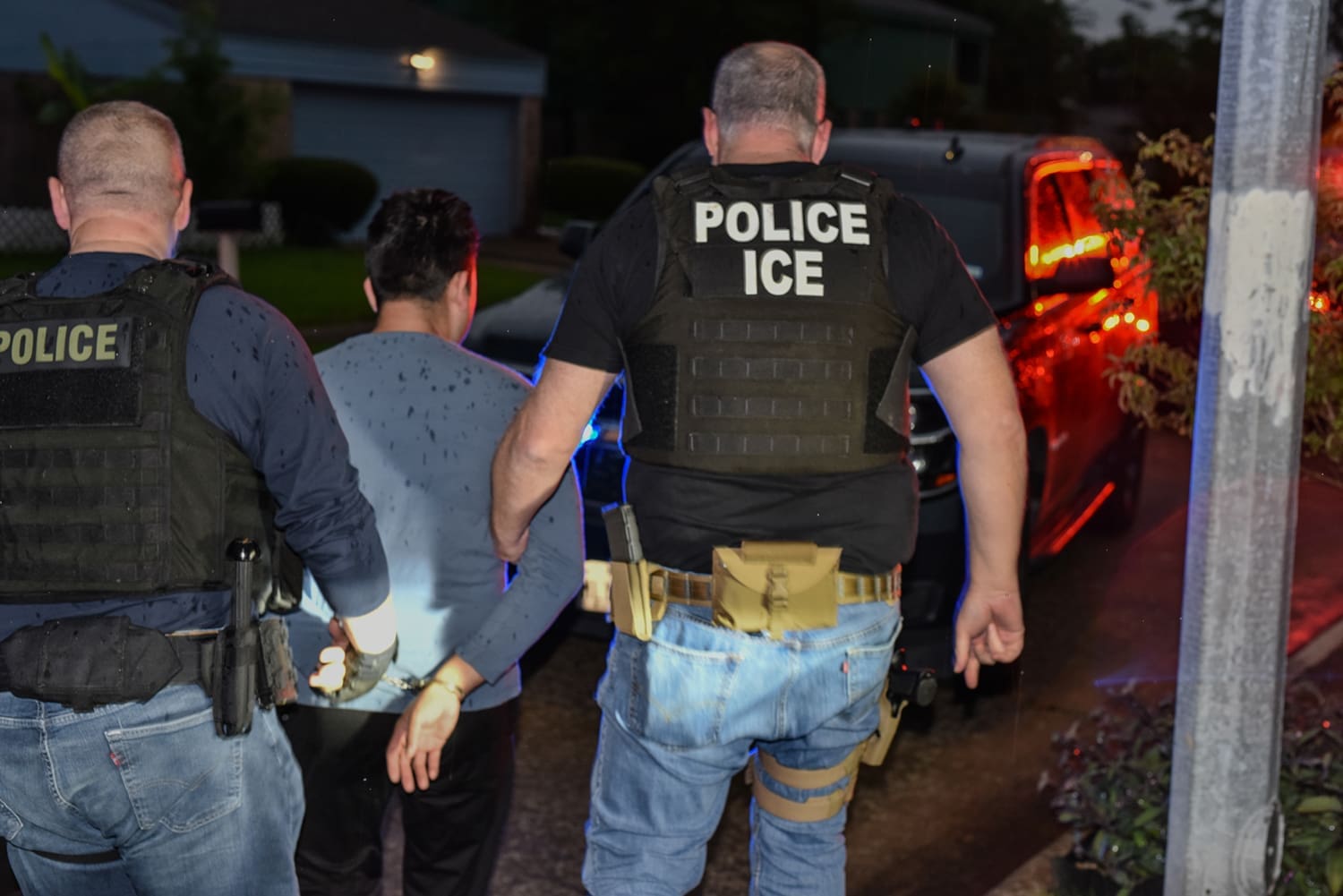On a large swath of land in Kinney County—filled with rolling caliche hills covered with sagebrush, a dry creek bed filled with magnificent oaks, and the ground covered with mesquite trees and brush—Donna Schuster has managed her family’s cattle ranching operation for more than 20 years.
“We’re hoping to leave it better than when we got it, for our children and our nation,” said Schuster.
And yet, this picturesque piece of land only 25 miles from the Rio Grande has turned into a highway for illegal border crossings.
In addition to the natural landscape, a few other landmarks are on the ranch. According to Schuster, “We have a transmission line, a big power line that goes across our ranch. That’s a big highway, per se, for them. And so, they’re traveling that. And then we have a Doppler radar on our ranch that’s also a big landmark for them. So, we get a lot of traffic on our ranch, because we have those landmarks.”
“I find some kind of sign every single day that someone has been on my ranch,” says Schuster. “Every time I leave my house, there’s some kind of indication that someone has been on my ranch.”
Law enforcement has been called to the Schuster property five times in the past year to respond to incidents where illegal border crossers have knocked on their door or approached their house.
Operation Lone Star, a state effort that has seen additional Texas DPS officers sent to border counties, has been a blessing to the county, according to Schuster, and a relief to the local sheriff and his small crew of deputies. Schuster believes that the DPS patrols on the highways have been a deterrent to the illegal border crossers who use the highways and then bail out to run onto private property.
However, Schuster says the problems will persist for as long as this open border policy continues.
“I don’t know all the politics of it and how all that works, but we’re gonna have to do something, because my parents worked hard to buy this land. People have said, ‘Well, if you’re scared on your own land, you just move.’ It doesn’t work that way,” said Schuster. “This is our land. And they worked hard, and they bought it, and you can’t give up on that land. It’s your legacy. It’s your legacy for your children. And so, it’s not like you just have a house in town, and you could just sell it and move to another community. When you have a ranch, you can’t do that.”
Schuster added, “In the last year, our life has been turned completely upside down. It is something that we just had never foreseen.”
She said that beginning last January, “the number of illegals coming through has been unbelievable. The group sizes are big. You know, growing up on a ranch, around ranching, we’ve always had illegals coming through. Never saw women before, or children. Men come through, maybe two or three; if you saw [a] group of five, that was a big group. We’ve got groups of like 45 coming through.”
The sizable groups are not the only issue with this increased traffic. “They’re very disruptive. We’ve never seen that before,” said Schuster. “The people that have come across primarily from Mexico for work, going from point A to point B looking for a job, did not intentionally tear up our water systems. The debris that they’re leaving behind is unbelievable. I’m picking up trash on my ranch daily, they’re leaving gates open, livestock is getting mixed up, or maybe water gaps between me and my neighbor.”
An incident over the summer left Schuster shocked when some of the illegal border crossers intentionally broke a water line. “I lost about 10,000 gallons of water this summer,” said Schuster. “It probably took me at least six weeks to gain that much water back.”
According to Schuster, “they could’ve reached over—it wasn’t enclosed—and gotten a drink. But they just took a rock and beat this line until they broke it. That’s mean. That’s just malicious.”
Security and safety have taken major precedence in the Schuster family’s life. Game cameras on the doors, rarely going out in the pre-dawn hours, working out of an enclosed truck instead of an open UTV on the ranch, and never leaving the house without a pistol have all become standard practice for the whole family.
“Our kids were probably like 5, 8, and 11 when we moved to the ranch,” said Schuster. “They had show animals in our barn, a little less than half a mile from our house. They had horses, they rodeoed, and it was their responsibility to go feed them in the afternoons and take care of them. We didn’t think anything about them walking to the barn. There’s no way I would let a child do that now. Our youngest is 20, and I will not let him be out on the ranch without a pistol right now. That’s just a requirement we have; I don’t leave the house if I don’t have a pistol on me. I’ve had them startle me just taking out the trash.”
According to Schuster, the people crossing her ranch are not poor migrants seeking a better life.
“I live 25 miles from the border. So when people are coming across my ranch, why are they, if you can just walk across and say, ‘Here I am, I want amnesty,’ and they’re processing them and sending them on wherever? Why are these big groups coming through my ranch? And why are they dressed in camo? And why do they have these backpacks? Why are they all dressed in black?” Schuster questioned. “They’re carrying drugs, weapons, smuggling children. They’re criminals. There’s a reason that they can’t claim amnesty when they walk across the river. Well, they’re not staying in Kinney County. So, they’re coming your direction, they’re coming to the cities. They’re not staying here. And so, even though it seems like it’s just my problem because I live on the border, it’s not just my problem. You need to realize they’re coming to you.”
Schuster warns that the debt incurred to the cartels after being smuggled across the border is not cheap. “So, what are they going to do to pay the cartel back? Because they’re indebted. When they get to the city, what are they gonna do to pay back their debt? You need to think about that. They’re going to be selling drugs or [taking part in] human trafficking.”
While Schuster doesn’t know the specific actions that need to be taken to make her home county safe again, she believes the status quo needs to change.
“This open border policy is not working. We’ve got to stop them in Mexico. I don’t know all the politics,” said Schuster. “I don’t know what the solution is. But we need help.”





